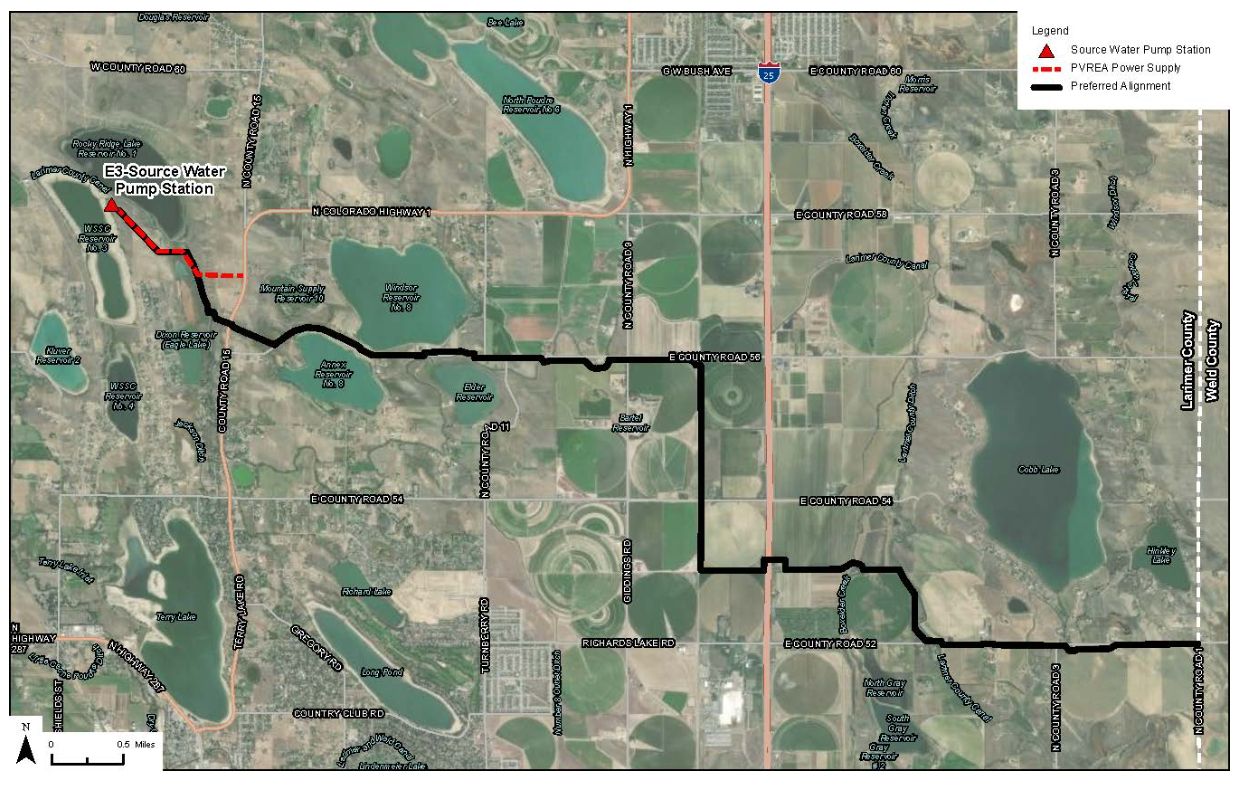Larimer to decide Wednesday on Thornton water plan

FORT COLLINS — After hearing two sharply divergent views on the subject, the Board of Larimer County Commissioners will decide Wednesday on whether to allow the city of Thornton to run a water pipeline for 10.4 miles across the county.
Commissioners on Monday night listened for nearly 90 minutes to more than two dozen residents’ impassioned pleas to force Thornton to send water it owns through the Cache la Poudre River to preserve that stream’s flows instead of through a 42-inch-diameter pipeline across the county.
However, Thornton officials and their lawyer countered that sending the water through the river shouldn’t even be talked about.
SPONSORED CONTENT
“We are in a position of rebutting an issue that clearly does not belong as a consideration towards approval of our 1041 application,” said Todd Barnes, the Denver suburb’s communications director. “The Poudre River option is truly not an option.”
He, along with Emily Hunt, the city’s deputy infrastructure director for water, and Carolynne White, an attorney with the Brownstein Hyatt Farber Schreck LLP law firm, which represents Thornton, emphasized that Thornton’s application does not take additional water out of the Poudre because it’s already been diverted and stored in Water Supply and Storage Co. reservoirs.
Barnes said sending the water through the Poudre as it flows through Fort Collins would “dangerously degrade the quality of the water,” and that because “water rights are property rights,” the 1041 statute “prohibits diminishing property rights.”
Named for House Bill 1041, passed by the Colorado Legislature in 1974, it’s a set of regulations that give local governments authority to regulate issues of “statewide concern,” including those involving transportation and the protection of specific geographic, historic, cultural and natural resources. Larimer County first adopted 1041-based regulations in 2008 and added water and sewer transmission lines in 2009.
“An applicant cannot be expected to address impacts that do not exist,” said White, adding that such requirements would be “prohibited by the 1041 statute.”
Hunt, responding to citizen complaints that Thornton’s proposal had no benefit for Larimer County, said the city, addressing residents’ concerns, had agreed to strive to maintain water levels in the WSSC reservoirs and to work with the community to protect the Poudre watershed, open spaces in Larimer County and agricultural lands there.
She said the plan would preserve 1,324 acres of land in the six Larimer County farms Thornton owns and guarantee $3 million for the Poudre River Enhancement Fund plus additional money if the proceeds from the sale of those farms are greater than $3 million.
Thornton wants the line to connect with an existing one to deliver water it owns from the Larimer County farmland it purchased in the 1980s to Thornton. Its representatives said developers there need the water to provide more affordable or attainable housing.
Five segments of the pipeline in other counties have been completed or will be soon, and the Larimer County section is the final piece.
Larimer County’s planning commission voted 5-3 to approve Thornton’s latest plan in April and to recommend that the county commissioners do the same.
At the initial hearing two weeks ago, Barnes had told commissioners that Thornton’s plan, with its “greater focus on impacts to people,” was far different from the one the county leaders unanimously rejected in 2019. He pointed out that the 10.4 miles of Larimer County land the pipeline would need is far less than the 27 miles in the original proposal and would affect 17 landowners versus more than 50, and that a planned 10,000-square-foot pump station would be relocated a half mile from the nearest residents.
Hunt said about 44% of the pipeline’s length through Larimer County would be “co-located” alongside the proposed Northern Integrated Supply Project pipeline.
At Monday’s hearing, commissioners questioned the project team about impacts on farmland and county roads, including calling for a brief executive session. After learning that his colleagues had more questions, commission Chairman John Kefalas adjourned the meeting after 10 p.m. No further public comment will be taken at Wednesday’s meeting, but commissioners will express their opinions and then the panel will vote on whether or not to approve Thornton’s 1041 application.
After hearing two sharply divergent views on the subject, the Board of Larimer County Commissioners will decide Wednesday on whether to allow the city of Thornton to run a water pipeline for 10.4 miles across the county.
THIS ARTICLE IS FOR SUBSCRIBERS ONLY
Continue reading for less than $3 per week!
Get a month of award-winning local business news, trends and insights
Access award-winning content today!

